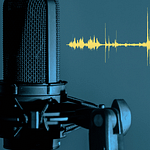When Hertz signed off on an order for 100,000 Teslas to be delivered within 14 months, it sent the company's stock soaring to over a trillion.
This single order is worth $4.2 billion, and it marks a shift in thinking.
Having an electric fleet changes the game for car rentals.
Hertz would have factored in the savings on fuel, maintenance and the charging network before making a commitment as far-reaching as this.
And it proves that EVs are now moving into the mainstream.
It is an acknowledgement that Tesla can deliver at scale as well.
While other major car manufacturers have committed to an all-electric car lineup by 2035, this is one of the goalposts being shifted along the way.
For a company to place an order of 100,000 cars on one manufacturer shows a level of confidence that should help to drive consumer confidence as well.
And that will lead to faster adoption. Once more people experience EVs, they are likely to make the shift faster. Nothing like driving a rental for a week to thoroughly get a feel and decide if this is going to be your 'regular' car.
That's good news, not just for Tesla but for the entire universe of EVs.
One of the hardest bridges to cross is the mental barrier. The next one is to create the infrastructure. And the third is to 'normalise' purchase to the point where buying an EV becomes a matter of choice, not a statement of being environmentally friendly, or anything else.
Update: Hertz placed another massive order with GM for 175000 cars The market for EVs, at least for rentals, has its foot on the accelerator.
Why 'Thank You' works, even in email
There are several customs in the real world that are part of normal social interactions.
When people help out with anything from carrying groceries to checking on friends and neighbors when they're unwell, or holding the door open in a public place, saying 'Thank you" comes naturally.
An app that aims to increase email productivity says that it works even on email.
Which is surprising because you assume that anything impersonal may not have the same effect.
Apparently, ending an email with Thanks gets the most response.
And the least responses? 'Best' and 'Regards'
Now, skeptics will immediately jump in and ask about messages that don't warrant a response.
The app did factor this in and looked only at emails that were meant to evoke a response, not just an acknowledgement.
Another clarification was about the exchange between strangers and known people, so saying 'Thank you' came more naturally.
They checked on this as well and said students were more willing to help strangers with a response when the email ended with thanks.
Some of this could be triggered simply because we're happy to help people who are polite and not pushy.
There's no solid reason for why this should work better but it is probably conditioning. We tend to accommodate requests when people ask pleasantly and then acknowledge the help.
What was more revealing is how the common salutations we tend to use, like Your Sincerely, and Faithfully seem to have practically no effect at all.
But the best way to figure out if this works for you? Try it and see the results!
A degree in social engineering
It isn't taught at any university.
But certain hackers specialise in it. They have ways of earning the trust of people in person or on the phone to get valuable information out of them.
Bank account numbers. Passwords. Social Security numbers.
The victims don't know it is an attack or that their company systems have been compromised until it is too late
In a social engineering attack, a person working in a sensitive position in a company could be approached by a friendly stranger who strikes up a conversation.
For example, they could be told that the company's network has been compromised and no one knows about it. The helpful person shows them a replica of the company page on a screen and they are invited to login.
If they make the mistake of entering company credentials on an unknown machine, they're enabling a hack.
When the login and password is entered, a blank page could be displayed, proving that the site is down.
But in reality, the hacker has managed to secure the credentials by playing on the person's trust.
And once hackers earns entry through a trusted source, they can simply ensure that future access can happen, even when this particular one is blocked off.
Fraudsters posing as bank officials or in positions of authority can get people to provide details simply by playing on their fear, or greed, with the lure of big money to be made in minutes.
Social engineering preys on the vulnerable, the technically challenged and even technical experts by appearing to come to their rescue.
Every week, I'll plant a few ideas in your mind on branding, behavior and markets. Triggers for your thoughts. Spread the word to your friends. All you have to do is click the link and enter an email address.













Share this post